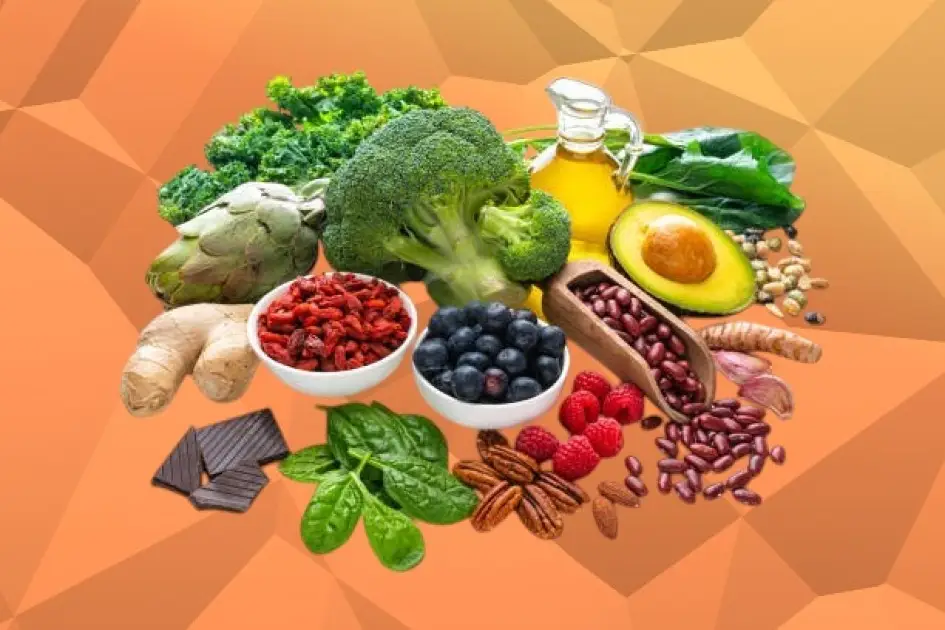A balanced diet rich in superfoods promotes a healthier life, focusing on whole unprocessed ingredients, cellular nourishment, oxidative stress reduction, and metabolic optimization.
Dr. Valter Longo, a renowned longevity researcher, asserts that extending lifespan is not achieved through extreme diets or pharmaceuticals but through selective food selection that supports cellular function.
Superfood promotes longevity, combat inflammation, and supports biochemical processes like autophagy and telomere preservation, while also boosting the body’s energy levels.
Harvard Medical School research indicates that a diet rich in prebiotic and probiotic foods can enhance gut health, improving immune regulation, cognitive function, and metabolic efficiency, thus promoting longevity.
Selecting the right superfoods can be challenging due to potential contamination. Organic-certified options like Best Organic Spirulina Powder and High-Quality Cold-Pressed Extra Virgin Olive Oil offer clean bioactive compounds without unnecessary additives.
In summary, this guide delves into the top ten superfoods that enhance longevity, cognitive function, energy levels, and overall well-being, offering expert advice, practical tips, and daily routine integration.
Choosing the Best Superfoods for Maximum Health Benefits
Selecting the right superfoods is crucial for maximizing longevity. A well-balanced diet includes nutrient-dense foods that nourish the body, boost immune function, and combat cellular aging, improving quality of life and extending it.
What Defines True Superfood?
Not all foods labeled as “superfoods” live up to their reputation. A true superfood must:
- Be rich in essential vitamins, minerals, and antioxidants that support cellular health.
- Have scientifically proven health benefits, such as reducing inflammation, improving metabolism, or supporting brain function.
- Contain bioactive compounds, such as polyphenols, flavonoids, and omega-3 fatty acids, which contribute to longevity.
The Science of Superfood Bioavailability
Bioavailability – the body’s ability to absorb and use nutrients – plays a crucial role in selecting effective superfoods. For instance:
- Turmeric’s curcumin content is poorly absorbed alone, but when paired with Organic Black Pepper Extract, its bioavailability increases by over 2,000%.
- Iron-rich plant foods like spinach contain non-heme iron, which is better absorbed when combined with vitamin C from citrus fruits.
- Omega-3 fatty acids in flaxseeds and chia seeds require conversion in the body, whereas those in Wild-Caught Fish Oil Capsules offer a more direct, bioavailable form.
How to Identify the Most Effective Superfoods
Choosing the right superfoods involves quality, sourcing, and preparation methods.
- Opt for Organic and Sustainably Sourced Options: Pesticides and heavy metals can compromise the health benefits of superfoods. Look for certified organic labels and third-party testing for contaminants.
- Consider Whole Foods Over Extracts: Whole foods contain a synergy of nutrients that work together. For instance, eating whole blueberries provides fiber, which slows sugar absorption, unlike processed blueberry extracts.
- Prioritize Minimal Processing for Maximum Nutrient Retention: High heat and excessive processing can destroy key nutrients. For example:
- Freeze-dried acai powder retains more antioxidants than heat-pasteurized acai juice.
- Cold-pressed green juice is superior to store-bought versions, which are often pasteurized.
Superfoods That Do Not Live Up to the Hype
While many foods are marketed as “superfoods,” some fail to deliver meaningful health benefits:
- Coconut sugar: Promoted as a healthier alternative, but still a concentrated form of sugar.
- Agave syrup: Has a high fructose content, which may negatively impact liver health.
- Açaí bowls: Often loaded with added sugars, negating the benefits of the berries.
Maximizing the Longevity Benefits of Superfoods
To fully leverage superfoods for longevity, focus on balance, consistency, and synergy:
- Pair superfoods strategically: Combining High-Potency Vitamin C Powder with iron-rich greens enhances absorption.
- Rotate superfoods regularly: Avoid over-reliance on a single food to ensure a broad spectrum of nutrients.
- Listen to your body: Superfoods should complement your individual health needs, not function as a one-size-fits-all solution.
By carefully selecting, preparing, and combining these powerhouse foods, you can create a sustainable and effective longevity-focused diet.
Final Thoughts
Choosing nutrient-rich superfoods is essential for a healthier, longer life. Consistency is key to unlocking their full potential. Embrace the journey of wellness, vitality, and longevity by incorporating these foods into your diet one meal at a time.
Top 10 Nutrient Superfoods for Longevity
Research indicates that consuming nutrient-rich foods like blueberries and fermented foods can enhance brain function, improve digestion, reduce inflammation, and maintain youthfulness, all of which are supported by health experts.
Incorporating superfoods into our daily routine can enhance longevity and reduce chronic disease risk. These nutrients not only fuel our bodies but also protect cells, reduce inflammation, and boost the immune system.
In this article, we will uncover the top ten superfoods that support longevity, helping you make healthier choices every day to live a life full of vitality and purpose.
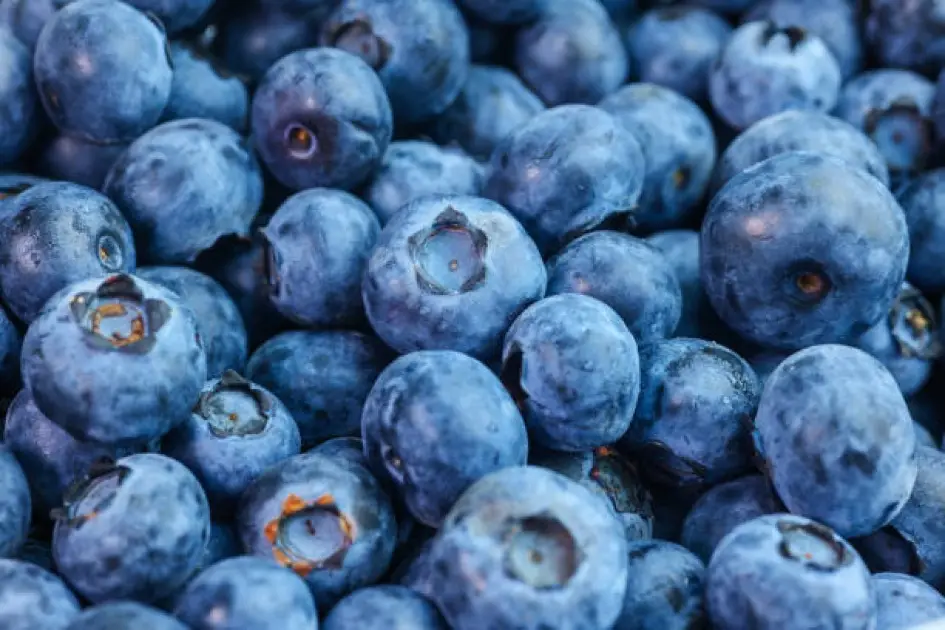
Blueberries: The Ultimate Antioxidant Powerhouse
Why They Matter:
Blueberries, rich in antioxidants, combat oxidative stress, a key factor in aging, and support brain health. Regular consumption may enhance cognitive function and reduce neurodegenerative decline, according to research.
Easy Ways to Add Them:
- Blend Organic Wild Blueberry Powder into smoothies with
- Add oatmeal or yogurt for a fiber-rich breakfast
- Freeze for a refreshing snack
Concerns & Solutions
- Pesticide exposure? Opt for Best Organic Blueberries varieties to minimize contamination.
- Short shelf-life? Top Freeze-Dried Blueberry Brands retain nutrients for months
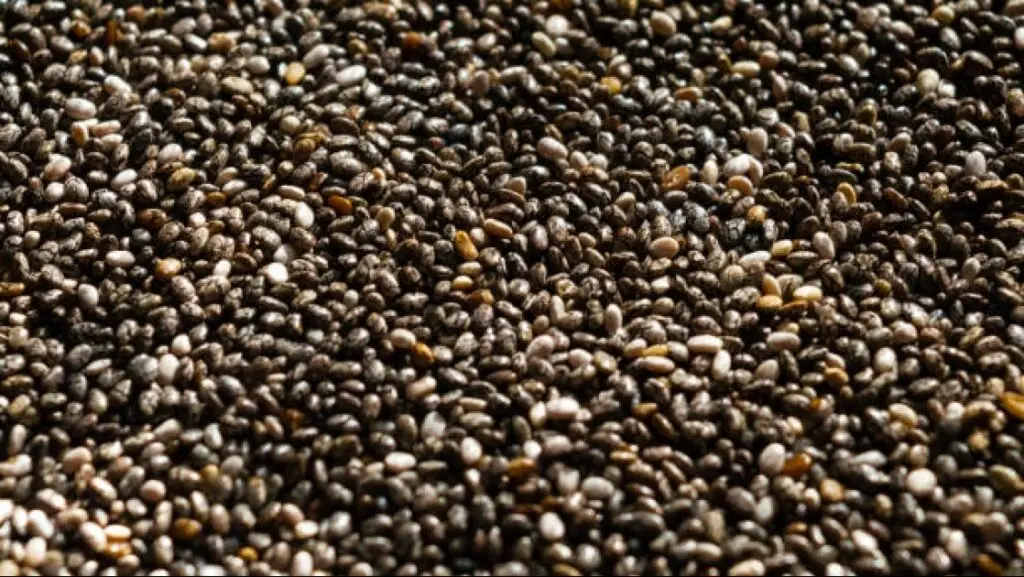
Chia Seeds: The Ancient Secret to Heart Health
Why They Matter:
Chia seeds, rich in omega-3s, fiber, and protein, are essential for cardiovascular health, reducing inflammation, and supporting longevity due to their omega-3 to omega-6 ratio.
Easy Ways to Add It:
- Soak Organic Chia Seeds overnight in almond milk for a fiber-rich chia pudding
- Sprinkle onto salads, yogurts, or smoothie bowls for added crunch
- Mix into water with lemon for a natural energy booster
Concerns & Solutions
- Can chia seeds cause bloating? To prevent bloating, start with a small portion and gradually increase intake while drinking enough water.

Spirulina: The Superfood of the Future
Why They Matter:
Spirulina, a blue-green algae, is a nutrient-dense superfood rich in phycocyanin, a compound that combats oxidative damage and inflammation, and is also a protein-rich superfood promoting immunity and energy levels.
Easy Ways to Add It:
- Blend greens, lemon, and ginger for an alkalizing smoothie
- Take as a tablet supplement
- Stir into fresh juices for enhanced absorption
Concerns & Solutions
- Spirulina’s taste? Opt for Spirulina capsules or blend into citrus-based drinks to neutralize flavor.

Turmeric: The Golden Elixir of Life
Why They Matter:
Turmeric, rich in curcumin, a bioactive compound with potent anti-inflammatory and neuroprotective properties, has been linked to improved cognitive function and reduced age-related disease risk in studies.
Easy Ways to Add It:
- Make golden milk with turmeric, black pepper, and coconut milk
- Add turmeric seasonings to soups, curries, or roasted vegetables
- Take Curcumin Supplements
Concerns & Solutions
- Low bioavailability? Always pair turmeric with black pepper (piperine) to enhance absorption.

Dark Chocolate: A Delicious Path to Longevity
Why They Matter:
Dark chocolate, particularly with 85% cacao or higher, contains flavonoids that improve cardiovascular function and protect against cognitive decline.
Easy Ways to Add It:
- Opt for organic, high-cacao content options
- Avoid brands with added sugar or milk solids
- Select single-origin Dark Chocolate Brands for the best antioxidant profile
Concerns & Solutions
- Does dark chocolate contain heavy metals? Choose reputable brands like Low-Cadmium Chocolate that evaluate contaminants.
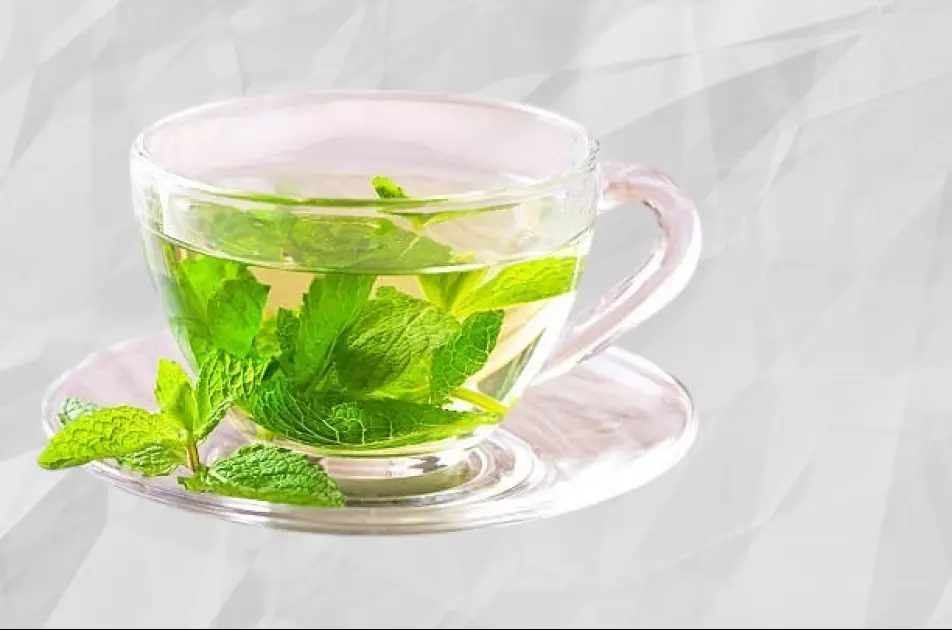
Green Tea: The Longevity Tonic
Why They Matter:
Green tea, rich in catechins and antioxidants, is known to support metabolic health, brain function, and cellular repair. Consuming green tea regularly, like those in Okinawa, Japan, leads to increased longevity.
Easy Ways to Add It:
- Brew at lower temperatures to preserve catechins
- Choose Organic Matcha Powder for maximum antioxidant potency
- Drink in the morning for sustained energy without caffeine crashes
- Make iced green tea with lemon for a refreshing drink.
- Blend matcha powder into smoothies
Concerns & Solutions
- Pesticide Residues? Avoid chemical residues in Non-Organic Green Tea.
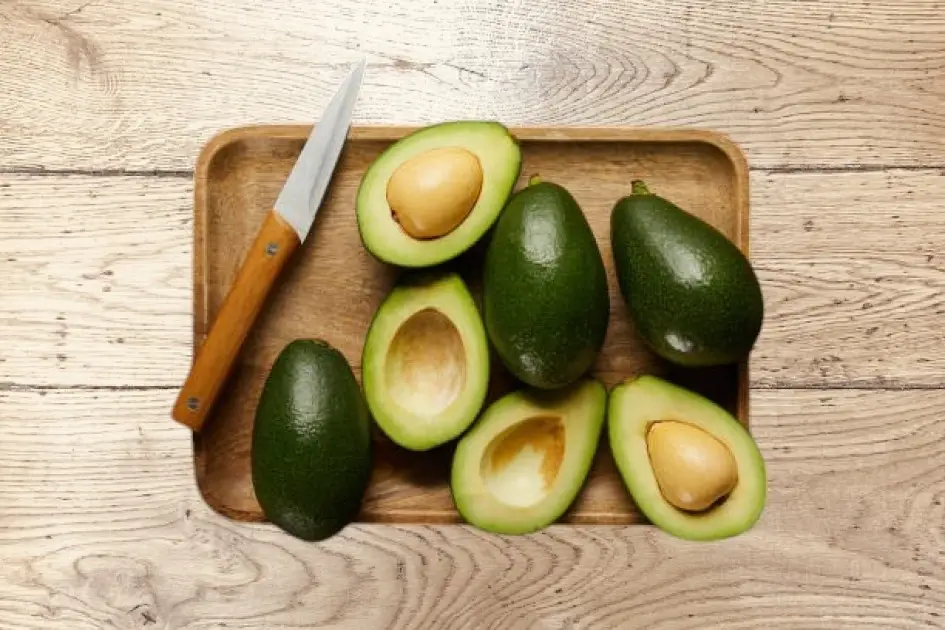
Avocados: The Healthy Fat You Need
Why They Matter:
Avocados are rich in monounsaturated fats, essential for heart health and brain function, and have been shown to reduce inflammation and stabilize blood sugar levels.
Easy Ways to Add Them:
- Mash onto whole-grain toast.
- Blend into a creamy smoothie.
- Slice onto salads or grain bowls.
Concerns & Solutions
- High-calorie content? Stick to half an avocado per day for optimal benefits.
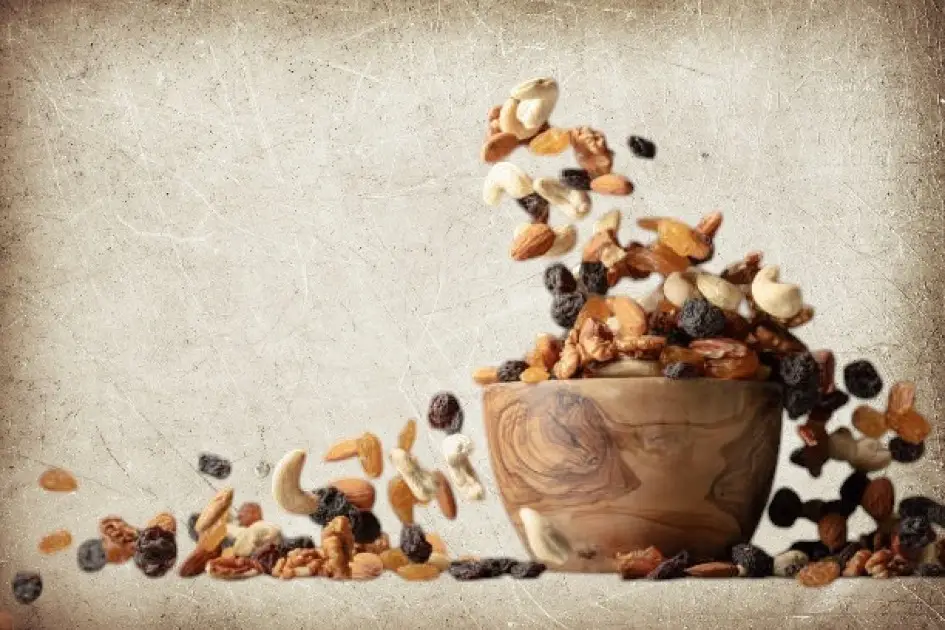
Nuts: The Tiny Nutritional Giants
Why They Matter:
Walnuts, almonds, and Brazil nuts are omega-rich superfoods that aid in reducing bad cholesterol, inflammation, and brain and heart health by providing essential nutrients.
Easy Ways to Add Them:
- Grab a handful as a snack.
- Stir it into oatmeal or yogurt.
- Mixed Nut Blend into homemade nut butter.
Concerns & Solutions

Fermented Foods: The Gut-Health Revolution
Why They Matter:
Kefir, kimchi, and sauerkraut are rich in probiotics, crucial for gut microbiome balance and immune function, promoting longevity.
Easy Ways to Add Them:
- Add kimchi or sauerkraut as a side dish.
- Choose yogurt with live cultures for breakfast.
- Drink kombucha for a probiotic boost.
Concerns & Solutions
- Fermented foods too sour? Start with small portions and mix with milder foods.
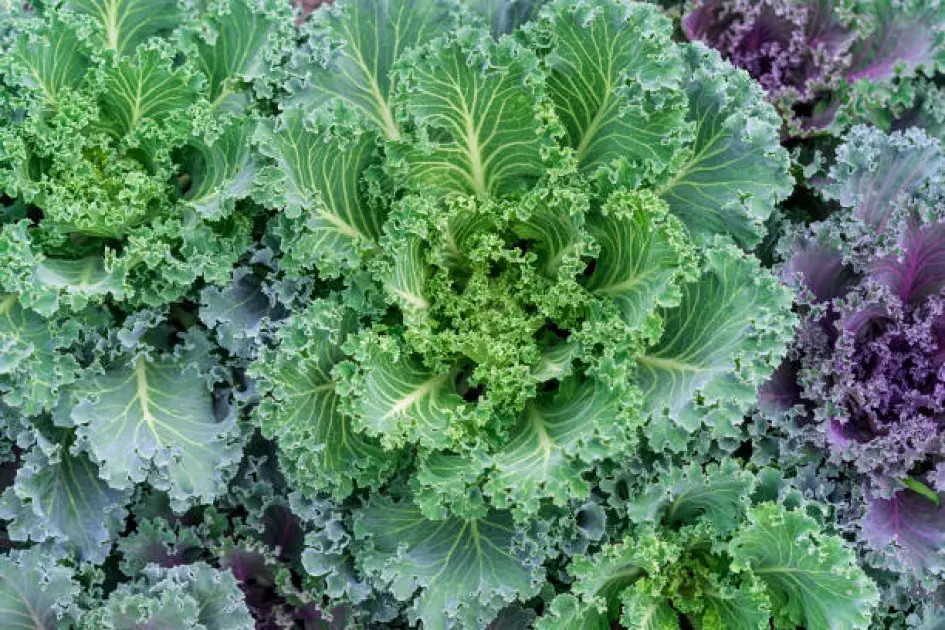
Leafy Greens: Nature’s Multivitamin
Why They Matter:
Spinach, kale, and Swiss chard are rich in vitamins, minerals, and fiber, essential for longevity and supporting cardiovascular and metabolic health.
Easy Ways to Add Them:
- Blend Greens Powder into smoothies for Easy Nutrient Intake.
- Toss into omelets or stir-fries.
- Use as a base for salads or grain bowls.
Concerns & Solutions
- Oxalates in leafy greens? Lightly steam greens to reduce oxalate content.
Final Thoughts
Living a long and healthy life requires informed choices that support the body at a cellular level. Incorporating nutrient-dense superfoods into your diet can improve heart health, brain function, and energize you. Making slight changes over time can lead to long-term benefits.
Superfood and Lifestyle
Integrating nutrient-rich superfoods into our daily lives, combined with a balanced, mindful, and movement-oriented lifestyle, is crucial for true longevity.
This section emphasizes the significance of a nutrient-dense lifestyle and holistic wellness practices for improved well-being, aging slowdown, and life extension through transformative habits.
How to Easily Add Superfoods to Your Daily Routine
Superfoods offer significant health benefits, can be easily integrated into daily routines by simplifying and adapting habits, reducing stress and time spent on preparation.
Add superfoods like chia seeds or flaxseeds to your meals for fiber, omega-3s, and antioxidants, and for protein-rich boost in smoothies, oatmeal, salads, or yogurt.
Superfoods can be easily integrated into drinks without a complete diet overhaul, providing long-term health benefits. For example, replacing coffee with matcha latte or adding spirulina powder to smoothies can transform ordinary drinks into nutrient-dense meals.
Add superfoods like seeds, nuts, or avocado to salads and leafy greens for nutrient-packed meals, and store pre-washed greens in the fridge for quick, healthy eating.
Superfoods like turmeric, ginger, and garlic can be easily integrated into daily cooking routines, enhancing flavor and health benefits. They enhance digestion, reduce inflammation, and provide versatility in any meal.
Cacao nibs, rich in antioxidants, are a delicious and nutritious superfood that can be added to various desserts, smoothies, baked goods, and yogurt for a sweet indulgence.
Superfoods can enhance overall well-being without drastic changes. Experimenting with ingredients and incorporating them into meals fosters sustainable habits, promoting a vibrant, energetic lifestyle and long-term health benefits.
Adding superfoods to your daily routine does not require extensive preparation or a complete overhaul of eating habits; simply make simple swaps to increase your intake.
Upgrade Your Breakfast with Superfoods
The initial meal of the day significantly influences energy levels and metabolic efficiency.
- Begin your morning with a nutritious green smoothie containing blueberries, chia seeds, and spinach for a boost of antioxidants.
- Enhance your coffee or tea with organic turmeric powder to promote anti-inflammatory pathways.
- Choose a nutrient-dense breakfast bowl with protein-fortified granola for sustained energy release.
Meal Prepping for Superfood Success
Meal prepping can help maintain a healthy diet by ensuring that you always have a variety of longevity-enhancing foods on hand.
- The process involves batch-cooking quinoa and lentils to produce nutritious, high-protein, and fiber-rich meals throughout the week.
- Pre-cut vegetables can be stored for quick stir-fries or salads with leafy greens, avocados, and nuts.
- Utilize superfood powders like spirulina and matcha to enhance the nutrient density in soups and dressings instantly.
Superfoods and Exercise
Superfoods enhance exercise performance and recovery, promoting overall wellness. Combining them with exercise boosts energy, reduces recovery time, and enhances overall wellness.
Exercise requires optimal performance, and not all calories are created equal. Superfoods, rich in vitamins, minerals, and antioxidants, provide the necessary nutrients for physical stress.
Superfood enhances endurance, muscle recovery, and prevents inflammation, enabling harder training. They maintain steady energy supply, unlike processed foods, ensuring a nutrient-dense diet.
Superfoods like kale, blueberries, and almonds are beneficial for faster recovery and muscle building, with blueberries being rich in antioxidants that reduce oxidative stress from intense exercise.
Green tea, a superfood rich in catechins, aids in fat burning and provides a natural energy boost. Its caffeine boost is sustained and gentle, making it an ideal pre-workout beverage without jitters.
Consuming omega-3-rich foods like chia seeds and salmon not only supports immediate energy needs but also strengthens long-term fitness goals by lubricating joints, reducing inflammation, and enhancing muscle repair post-exercise.
Superfoods like cucumbers and watermelon are rich in water, promoting hydration, preventing fatigue, cramping, and decreased strength, ensuring 100% performance during workouts and promoting overall health.
Post-workout meals, rich in protein, carbohydrates, and antioxidants, are essential for muscle repair and glycogen restoration, refueling the body and accelerating the healing process.
Superfoods like avocados and dark chocolate not only aid in body recovery but also reduce stress and anxiety, enhancing mood and cognitive function.
Superfoods can enhance exercise outcomes without a strict meal plan by incorporating them into meals like almonds post-workout, kale and chia seed smoothies, or green tea.
Pre-Workout Superfoods for Sustained Energy
Consuming the right foods before exercising can enhance endurance and prevent fatigue.
- Choose a smoothie containing bananas, nuts, and matcha for a sustained glucose release.
- Consider a pre-workout energy bar containing cacao and natural honey for a caffeine-free energy boost.
Post-Workout Recovery with Superfoods
Following a rigorous workout, the body naturally seeks high-quality proteins and foods that are anti-inflammatory.
- Consume a post-workout smoothie containing plant-based protein and tart cherry extract to enhance muscle repair.
- Consume fermented foods like kimchi, sauerkraut, or kefir to maintain gut microbiome balance.
Best Nutrient Supplements to Boost Longevity
Supplementation can extend lifespan, boost energy, and promote wellness by providing essential vitamins, minerals, and antioxidants, despite the challenges of obtaining them through diet.
Fish oil, rich in omega-3 fatty acids, is essential for heart health, inflammation reduction, and brain function, reducing chronic disease risk and cognitive decline.
Vitamin D, essential for bone health, immune system, and mental well-being, decreases with age, leading to osteoporosis, heart disease, and cancers. Supplementing supports immune function and bone density.
Collagen supplements are crucial for skin health and longevity, restoring elasticity, preventing wrinkles, and supporting joint health by replenishing cartilage and making movement smoother.
CoQ10, an essential antioxidant, can help maintain an active lifestyle by restoring energy, improving cognitive function, and protecting against oxidative damage as we age.
Turmeric and curcumin, known for their anti-inflammatory properties, are being recognized for their potential to combat chronic inflammation, a significant contributor to aging-related diseases like arthritis and cardiovascular disease.
Magnesium, crucial for blood pressure regulation, muscle and nerve function, and bone health, can help improve sleep quality and cardiovascular function in older individuals.
Supplements can improve longevity, but they should be combined with a balanced diet, regular physical activity, and a healthy lifestyle to maintain youthfulness and energy.
Essential Superfood-Based Supplements
Certain nutrients may be challenging to obtain solely from diet.
- Omega-3 fatty acids: Found in fatty fish and can also be found in algae-based omega-3 capsules for plant-based alternatives.
- Vitamin D3 + K2: Crucial for bone health and cardiovascular function, especially if you have limited sun exposure.
- Curcumin with black pepper: Turmeric’s active compound has potent anti-inflammatory properties, but it requires piperine for improved absorption.
Superfoods vs. Supplements
Nutrition experts are dividing superfoods and supplements, with superfoods being nutrient-rich foods and supplements providing concentrated doses to fill dietary gaps.
Superfoods like fruits, leafy greens, and whole grains offer a comprehensive nutritional profile, including antioxidants and heart-healthy fats, essential for maintaining bodily functions.
Superfoods’ accessibility and practicality are limited, making daily consumption time-consuming and expensive. Supplements offer concentrated nutrients for specific needs like vitamin D levels or joint health.
They offer a holistic nutrition approach, supporting health with a wide range of nutrients. Supplements should be used alongside a nutrient-dense diet, not in place of it.
Superfoods provide natural, sustainable health benefits like fiber, blood sugar regulation, and antioxidants in leafy greens, surpassing supplements in promoting overall health and preventing chronic conditions.
Supplements offer a more precise and accessible alternative to superfoods, providing a more precise solution for individuals with specific nutrient deficiencies or medical conditions.
A balanced combination of superfoods and supplements is recommended for overall wellness, providing long-term support while supplements cater to specific health concerns.
Superfoods and supplements are not mutually exclusive, each with unique strengths and weaknesses. Effective use of both can optimize health and longevity, provided they are used in tandem.
Superfoods Recognition
- Whole foods offer bioavailable compounds, fiber, and synergistic nutrients that supplements lack.
- Supplements, such as vitamin B12 for plant-based eaters, can assist in addressing deficiencies.
- A hybrid approach is recommended, focusing on whole foods and supplementing with science-backed supplements to address nutritional deficiencies.
Superfood Meal Plans for Maximum Health
A balanced, nutrient-packed diet, rich in superfoods, is essential for peak health and longevity. A meal plan incorporating these nutrients ensures the body receives their full potential.
A superfood meal plan is a balanced, effective approach to health, incorporating essential vitamins, antioxidants, healthy fats, and fiber to support various body systems.
Chia seed pudding, berries, nuts, and honey are nutritious breakfast options, providing omega-3s, fiber, protein, antioxidants, and healthy fats for brain function and morning fullness.
A nutritious lunch option includes leafy greens, quinoa, avocado, pumpkin seeds, and carrots, with lemon-tahini dressing for heart-healthy fats and digestive support.
Grilled salmon fillet, roasted sweet potatoes, and steamed broccoli or Brussels sprouts provide a balanced dinner with omega-3 fatty acids, vitamins A and C, and fiber.
Snacks like raw almonds and pistachios are antioxidant-rich, healthy fats that improve cholesterol and fight oxidative stress, while Greek yogurt with chia seeds and honey is gut-healthy.
A superfood meal plan, incorporating whole foods like leafy greens, berries, lean proteins, and healthy fats, offers sustained energy and optimal health benefits.
Superfoods enhance immune function, digestion, and mental clarity, making a superfood meal plan a customizable lifestyle choice suitable for busy professionals, parents, and health enthusiasts.
Superfoods, rich in essential nutrients, antioxidants, and vital energy, are crucial for long-term health and longevity, supporting the body’s natural processes and optimizing its potential.
The Ultimate Longevity Meal Plan
- Breakfast: Chia pudding made with organic cacao nibs, almonds, and pomegranate seeds.
- Lunch: Salad made of quinoa and kale, topped with avocado, walnuts, and a lemon-turmeric dressing.
- Dinner: Baked salmon, roasted Brussels sprouts, and fermented kimchi on the side.
When to Eat Superfoods for Best Results
The debate on when to consume superfoods has gained attention in health optimization, with science suggesting that body needs and energy patterns determine the optimal time for each nutrient-packed powerhouse.
Mornings are crucial for metabolism, and nutrient-dense foods like antioxidant-rich berries and greens replenish reserves, stabilize blood sugar levels, and provide sustained energy.
Morning superfoods like avocados and fermented yogurt enhance physical and mental health, while incorporating healthy fats, probiotics, and complex carbohydrates for energy release and digestion.
The evening is a crucial time for the body to prepare for rest and repair, utilizing superfoods like turmeric and dark chocolate for their anti-inflammatory and regenerative properties.
Consuming superfoods in the evening for detoxification and leafy greens aids in toxins elimination, while a light, nutrient-dense dinner supports digestion and recovery, promoting long-term health.
Consuming the right superfoods at the right times can significantly improve your health, especially during morning and evening meals, which are crucial for maintaining optimal health.
Morning Superfoods for Energy & Focus
Begin your day with:
- Green tea or matcha is a popular choice for its rich L-theanine and natural caffeine content, providing sustained focus.
- Dark chocolate is known for its potential to enhance cognitive function and regulate mood.
- Chia seeds and nuts are commonly used to maintain healthy blood sugar levels.
Evening Superfoods for Cellular Repair
Prioritize before bedtime to ensure a comfortable sleep:
- Tart cherry juice can enhance natural melatonin production, promoting deeper sleep.
- Fermented foods are a natural way to improve gut health and immune function.
- Turmeric latte with black pepper is known for its overnight anti-inflammatory benefits.
Final Thoughts
Superfoods are not just a diet change; they are a commitment to self-care, complemented by mindful practices like physical activity, stress management, and sleep. A holistic approach to health ensures vitality and resilience.
Adopting a lifestyle that promotes nutrient-rich foods and active health, with a perfect synergy between food and lifestyle, is crucial for longevity.
The Science of Longevity & Nutrition
Nutrition significantly influences aging, with nutrient-dense foods influencing cells, metabolism, and immune system, making a slowing aging process, high energy levels, and peak performance achievable.
Nutrient-rich diets can prevent diseases, slow aging, and extend lifespan, with understanding their profound effects on cellular function and metabolism promoting longer, healthier lives.
Cellular Aging and the Role of Nutrition
Aging is a multifaceted biological process influenced by genetics, environment, and diet, with oxidative stress, inflammation, and metabolic dysfunction accelerating cellular aging.
- Oxidative Stress and Free Radicals: Superfoods, rich in antioxidants, can help slow aging by neutralizing free radicals, reducing cellular damage, and protecting DNA, proteins, and lipids from oxidative damage.
- Chronic Inflammation and Aging: Inflammaging, persistent inflammation, contributes to age-related diseases. Consuming foods rich in polyphenols, flavonoids, and omega-3 fatty acids can combat inflammation and promote longevity.
- Mitochondrial Health and Energy Production: Mitochondria are crucial for cell longevity, and dietary choices can enhance mitochondrial efficiency, energy production, and reduce wear and tear, with Mitochondrial Support Supplements being beneficial.
Recent research suggests that the quality of macronutrient intake, rather than quantity, may have a more significant impact on lifespan than calorie restriction.
The Impact of Superfoods on Longevity Pathways
Superfoods impact longevity pathways by regulating metabolism, cellular repair, and overall resilience against age-related decline.
The mTOR Pathway and Longevity
Superfoods play a crucial role in promoting longevity by regulating metabolism, cellular repair, and enhancing overall resilience against age-related decline.
- Why It Matters: Dietary strategies like intermittent fasting and plant-based superfoods can inhibit mTOR, a cellular repair process, potentially promoting autophagy.
- Superfood Connection: Blueberries and dark chocolate, rich in resveratrol, have been found to help regulate mTOR and extend lifespan. A high-quality Resveratrol Supplement can enhance these benefits.
Sirtuins and the Anti-Aging Code
Sirtuins are proteins that regulate cellular health, inflammation, and metabolism, activated by caloric restriction and specific bioactive compounds.
- Why It Matters: Sirtuins are essential for DNA repair and mitochondrial function, which are vital for longevity.
- Superfood Connection: Green tea, dark chocolate, and turmeric are natural sirtuin activators that may mimic the benefits of fasting.
Enhance your longevity strategy with Green Tea Extract.
AMPK: The Metabolic Master Switch
AMPK, an enzyme that regulates energy balance and cellular repair, has been linked to improved longevity and metabolic efficiency.
- Why It Matters: AMPK activation enhances insulin sensitivity, minimizes inflammation, and stimulates autophagy.
- Superfood Connection: Avocados, nuts, and fermented foods are known to naturally boost AMPK activity, which is essential for cellular renewal.
AMPK activation can be enhanced through strategic superfood consumption, not just caloric restriction, and an AMPK Activator Supplement can help maintain these benefits.
The Gut Microbiome and Longevity
Recent discoveries highlight gut health’s significant impact on aging, as the gut microbiome, a diverse ecosystem of trillions of microorganisms, is crucial for immune function, digestion, and cognitive health.
- Microbiome Diversity and Lifespan: Studies show that centenarians have a more diverse gut microbiota compared to younger populations.
- Probiotics and Prebiotics: Fermented foods like kimchi, kefir, and miso are rich in beneficial bacteria, which are essential for immune resilience and metabolic health.
A High-Potency Prebiotic Blend can significantly improve gut health by incorporating fiber-rich foods, which are essential for maintaining overall gut health over time.
The Role of Caloric Restriction and Fasting in Longevity
Caloric restriction and intermittent fasting are widely researched dietary interventions for lifespan extension, influencing cellular repair, metabolism, and inflammation reduction.
The Science Behind Caloric Restriction
Research indicates that a 20-30% reduction in calorie intake can extend lifespan and maintain metabolic health in various species. This process is associated with:
- Enhanced autophagy (cellular detoxification)
- Reduced oxidative stress
- Improved insulin sensitivity
Support fasting benefits with Fasting Tea Blends.
Intermittent Fasting and Longevity
Intermittent fasting cycles, which occur between eating and fasting periods, trigger mechanisms that protect against age-related decline. The most common protocols include:
- 16/8 Method: Fast for 16 hours, eat within an 8-hour window.
- 5:2 Diet: Eat normally for five days, restrict calories for two.
- Alternate-Day Fasting: Eat every other day, reducing overall caloric intake.
Fasting not only aids in weight loss but also improves mental clarity, reduces inflammation, and enhances gut microbiome diversity.
Final Thoughts
The science of longevity and nutrition emphasizes that our choices in food directly impact on our body’s ability to thrive as we age, not just the years added to our life.
Nutrition is crucial for longevity, enhancing cellular health, combating inflammation, and supporting brain function. Investing in nutrient-rich foods like Longevity Superfood Powders promotes vitality and longevity.
Addressing Concerns About Superfoods
Superfoods’ increasing popularity raises questions about their health benefits, including the potential to reverse aging and promote vitality, but skepticism surrounds these nutrient-rich options due to their overwhelming nature.
This section delves into the potential and limitations of superfoods, aiming to provide a comprehensive understanding of their potential and limitations for informed diet and longevity choices.
Do Superfoods Really Work, or Is It Just Hype?
Superfood, a term often contested as a marketing ploy, has been proven to significantly enhance cellular health and longevity through numerous studies.
Dr. Michael Greger, author of How Not to Die, emphasizes the significant benefits of whole foods rich in antioxidants, polyphenols, and phytonutrients in combating oxidative stress and reducing chronic disease risk.
A study in The Journal of Nutrition found that diets rich in polyphenol-rich foods like blueberries, green tea, dark chocolate, and Organic Superfood Powders boost your daily intake effortlessly and lowers mortality rates.
Are There Any Side Effects of Consuming Too Many Superfoods?
Overconsumption of superfoods, despite their essential bioactive compounds, can lead to imbalances. For instance:
- Oxalates in Leafy Greens: Spinach and kale contain oxalates, which in excessive amounts may contribute to kidney stone formation.
- Excess Antioxidants: While antioxidants neutralize free radicals, consuming too many can impair the body’s natural oxidative balance.
- Digestive Issues from Fiber-Rich Foods: Overloading on chia seeds or flaxseeds can cause bloating and discomfort.
Dr. Rhonda Patrick, a biomedical scientist, advocates moderation in superfood consumption, stating that they should complement a balanced diet for optimal metabolic function.
Diversify your superfood intake to avoid side effects and achieve sustainable health benefits. Use best digestive enzymes for optimal superfood absorption.
How to Avoid Contaminants in Superfoods
The increasing demand for superfoods has led to mass production, posing risks of contamination from pesticides, heavy metals, and mold.
A Consumer Reports analysis reveals that certain imported spirulina and cacao powders contain trace amounts of lead and cadmium, which can be harmful in high doses.
To ensure safety:
- Choose Certified Organic Products: Opt for USDA-certified organic foods that limit exposure to pesticides.
- Research the Brand’s Testing Standards: Reputable brands provide third-party lab results for heavy metal screening.
- Diversify Your Sources: Rotate between assorted brands and regions to minimize exposure to specific contaminants.
Are Exotic Superfoods Better Than Local Alternatives?
Local superfoods like acai, maca, and camu camu offer similar benefits at a lower cost, despite their popularity in exotic superfoods.
For example:
- Acai vs. Wild Blueberries: Both are rich in anthocyanins, but wild blueberries grow locally in North America and have comparable antioxidant levels.
- Chia Seeds vs. Flaxseeds: Chia seeds contain omega-3s, but flaxseeds have even higher levels of ALA (alpha-linolenic acid) and lignans for heart health.
- Moringa vs. Spinach: While moringa is praised for its nutrient density, spinach provides similar micronutrients with easier accessibility.
Dr. Walter Willett emphasizes the importance of consuming a variety of whole, unprocessed foods, including local foods, to optimize nutrient intake.
Final Thoughts
Superfoods, like blueberries and turmeric, offer significant benefits but are not a magic bullet. They should be part of a diverse, well-rounded diet to unlock their full potential. Health is not a one-size-fits-all solution, and what works for one person might not yield the same results for another.
Addressing superfood concerns helps focus on sustainable habits for longevity and a vibrant life. Nutrient-packed superfoods can enhance diet and lifestyle, forming part of a holistic approach alongside exercise, sleep, and stress management. Top-rated superfood blends are recommended for daily wellness.
Recap: The Ultimate Key to a Longer Life
Nutrient-rich superfoods promote longevity through a holistic approach, involving appropriate foods, lifestyle habits, and mental well-being, with nutrients significantly influencing aging quality and extending years.
Dr. Emily Shaw advocates for a nutrient-dense lifestyle, including blueberries, leafy greens, and dark chocolate, to improve cell repair, reduce oxidative stress, and reduce inflammation.
Longevity involves quality years, ensuring vibrant, vital years by prioritizing nutrient-dense foods that nourish body and mind, maintain cognitive function, energy levels, and immune support.
Longevity is a multifaceted objective requiring a balanced lifestyle, including regular exercise, mindfulness, and sleep, enriched with nutrient superfoods, to promote mental and emotional health.
Research shows the mind-body connection, positive thinking, social connections, and purpose significantly promotes longevity and healthier lives, encompassing not just food but also lifestyle.
Future research may reveal more nutrient-dense foods, including superfoods and Nutrient-Packed Multivitamins, which provide daily health benefits and help fill gaps in diets.
Consuming nutrient-dense superfoods like chia seeds, spirulina, or green tea can enhance health and longevity, supporting the body’s resilience against aging challenges.
The text suggests a gradual approach to enhancing longevity and superfoods, emphasizing sustainable lifestyle changes like diet adjustments, physical activity, and mental health nourishment.
Nutrient-dense foods and a balanced lifestyle are essential for a long, fulfilling life, supported by science, experts, and evidence. Small, impactful changes are crucial for future success.
In summary, longevity is a journey, starting with nutrient-rich food choices and continuing through slight changes for a healthier life.
Frequently Asked Questions
Which superfood is best for anti-aging?
Blueberries are highly effective in anti-aging due to their high antioxidant content, which neutralizes free radicals, preventing oxidative stress and cellular damage, thus providing a convenient supplement for a healthy lifestyle.
How can I add these superfoods to my diet?
To incorporate nutrient-rich superfoods into your meals, make small, sustainable swaps like adding spinach, kale, nuts, or chia seeds to smoothies, oatmeal, or salads, without a complete dietary overhaul.
Do I need supplements if I eat these superfoods?
Whole foods like leafy greens and fermented foods are ideal, but some may benefit from supplementation. Nutrient-rich supplements can fill nutrition gaps but consult a healthcare provider for the right dosage and form.
Supplements may be convenient, but whole foods’ bioavailability of nutrients like fibers, vitamins, and antioxidants may be better.
What is the best time to consume nutrient-dense superfoods for optimal benefits?
Nutrient intake timing affects absorption and effectiveness. Consuming green tea or turmeric in the morning boosts metabolism and antioxidants. Protein-rich superfoods like spiritual or nuts aid muscle recovery and endurance. Fermented foods like kimchi or kefir aid digestion and gut health.
Can I still enjoy indulgent foods and consume superfoods?
Moderation is key when enjoying indulgent foods, such as dark chocolate (70% cocoa or higher), which provides heart-healthy flavonoids and satisfies sweet tooth cravings. Superfoods work best when integrated into a balanced diet with whole foods, exercise, and hydration.
Are superfoods expensive?
Superfoods can be affordable, with budget-friendly options like sweet potatoes, spinach, and berries providing nutrient boosts. Bulk purchases, seasonal shopping, and frozen options can also help reduce costs.
How do superfoods support longevity in the long run?
Superfoods like avocados and green tea promote longevity by enhancing cellular repair, reducing inflammation, and promoting healthy brain and heart function. They combat oxidative stress and protect against chronic conditions.
Are there any risks or side effects of consuming too many superfoods?
Overconsumption of certain superfoods can cause imbalances, such as excessive vitamin K from leafy greens and turmeric upset digestion. Maintaining balance is crucial, and for health conditions, consult a nutritionist or physician before increasing intake.
Can nutrient-dense superfoods help with mental clarity and focus?
Superfoods like blueberries, green tea, and walnuts enhance cognitive function, memory, and mental clarity. Nuts and seeds contain omega-3 fatty acids, which are crucial for brain health, reducing cognitive decline and improving focus.
Where can I buy high-quality superfoods and supplements?
Trusted online retailers offer organic, sustainably sourced superfoods and supplements. Look for brands with transparency in sourcing and production. Shop for nutrient-packed supplements from trusted online stores with free shipping and positive customer reviews.

